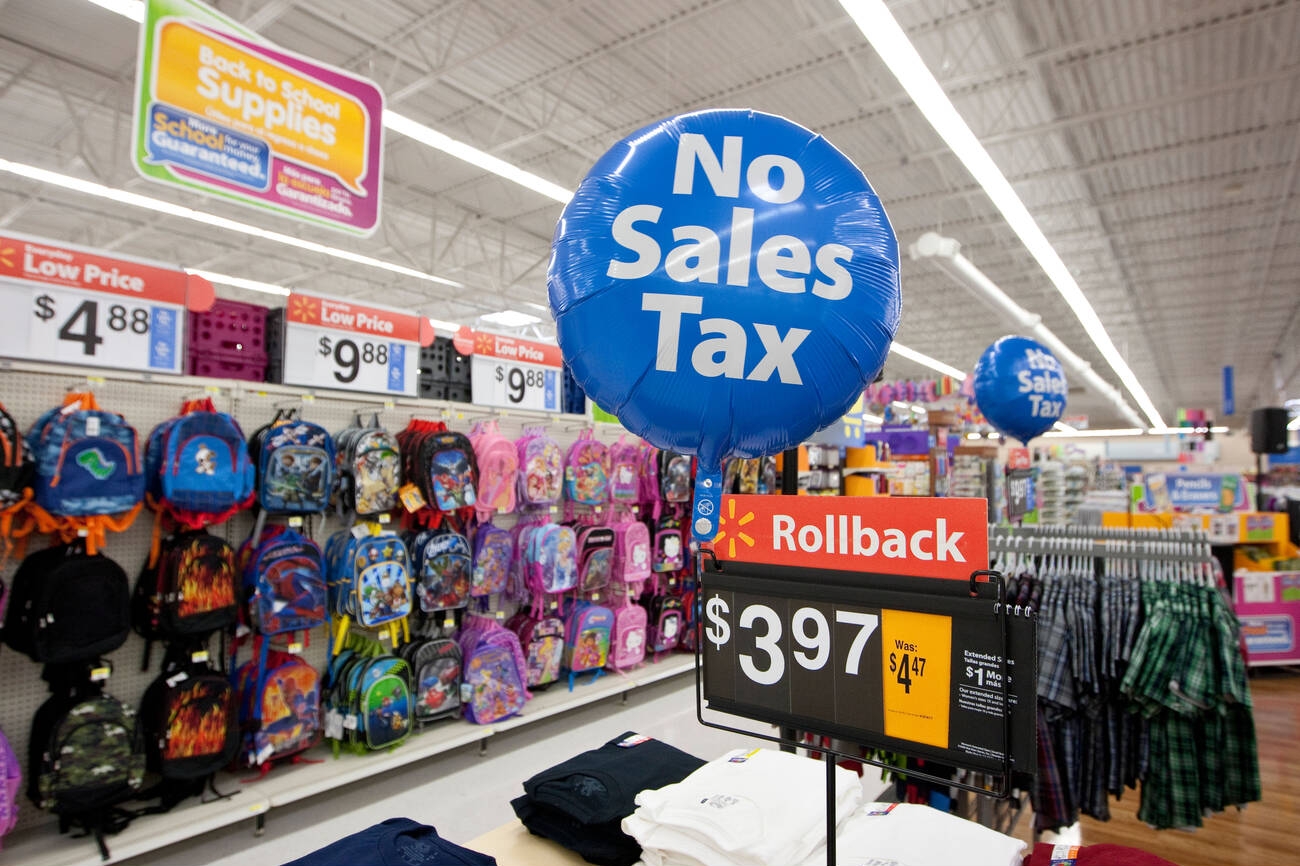By Girard Miller
Governing
(TNS)
Dec. 3—This year at least 19 states have granted sales tax holidays at one time or another. Always announced with great flourish and assertions that these temporary waivers of the sales tax are a boon for taxpaying consumers—and a welcome shot in the arm for local retailers and advertising media—these short-term respites do get the attention of shoppers. But researchers doubt that they actually result in more sales over time and maintain that they just invite buyers to accelerate or delay their purchases to dodge taxes. Over a year, nothing changes for retailers’ income.
With the year-end holiday season now upon us, it’s probably too late for state legislatures to take actions that would impact the 2024 holiday traffic, but there will be proponents of the concept making their pitch for a New Year’s tax holiday season, when consumers are retrenching after their traditional annual year-end spending splurges. If you add annual inventory liquidation discounts to a sales tax holiday, the savings for some consumers could be compelling. So don’t be surprised to see state-level lobbyists making their last-minute pitches in coming weeks.
Researchers with the Tax Foundation have looked into this topic, and their general conclusion is that sales tax holidays rarely achieve their stated purpose of boosting economic activity—it’s mostly just a shift in consumption timing. Household budgets and credit card capacity are limited, so a dollar spent in January is likely to subtract from April’s purchases.
Given this nothingburger outcome, along with the foregone tax revenue and the administrative and compliance costs that sales tax holidays create for both the tax collectors and the merchants, the foundation’s report concludes that the whole idea of such temporary measures is just not worth the effort. With their generally anti-tax or low-tax bias, the writers there advocate year-round tax reductions rather than erratic tax holidays.
But this year, many state budget offices are scraping for revenues in the afterwash of the so-called COVID-19 revenue wave, whereby 2021’s federal stimulus payments to households jacked up sales tax revenues—which politicians in red and blue states alike tapped to finance unsustainable tax cuts. So it seems unlikely that we’ll see many across-the-board permanent sales tax reductions approved in 2025. Historically, these tax holidays are more likely to crop up when state revenues are flush and politicians enjoy a budgetary surplus.
State treasury data confirm that revenue growth has slipped and budgets are tighter, with expenses running ahead of revenue. Unless the U.S. economy continues to outperform the rather meek expectations of many investors and budget officers, the overall direction for sales tax rates in 2025 is more likely to be up slightly rather than down. Look for stable—but not lower—rates in states like California with high income taxes that now look likely to benefit from the strong two-year bull market in stock prices. That will once again produce above-budget cyclical capital gains tax revenues in April, when final 2024 payments and 2025’s first quarterly estimated income tax payments both come due.
In light of the budget-tightening that some legislators will face, one possible scenario for a sales tax holiday would be a “blue light special” strategy to enact a permanent tax-rate increase but precede it with a brief tax holiday as a way to brace taxpayers for the inevitable. The idea here is what’s called an announcement effect: presenting the taxpayers with a good-news-bad-news reveal. Call it cynical, but it’s the kind of sugar-coating PR that comes naturally to the political mind.
The other way that a 2025 tax holiday might be delivered in a few states would be a selective waiver of sales taxes limited to only brick-and-mortar retailers and not the national online vendors like Amazon or Etsy. If state laws regulating tax discrimination allow it, this would be a way for legislators to provide some favoritism for local merchants—who just happen to be voters and campaign contributors.
The tax holiday could be even narrower, focusing only on certain product lines, such as gas-powered automobiles, restaurants or products manufactured or widely produced in their state. The list of such selective sales tax holidays that states have already enacted is longer than you might imagine. Obviously this invites all kinds of legislative mischief for political stunts, paybacks or favoritism awarded at the expense of other businesses. The concept alone should inform us that it’s a slippery slope, and probably not an approach that ultimately benefits the general population or the public fisc.
Time will tell which states enact sales tax holidays in 2025 and what form they might take, but it’s a safe bet that the topic will surface in plenty of state capitols in coming months. It’s the kind of impulsive grandstanding idea that some politicians simply cannot resist. Budget officers lobbying their political bosses will have their work cut out for them to minimize the inevitable revenue hit.
Governing’s opinion columns reflect the views of their authors and not necessarily those of Governing’s editors or management. Nothing herein should be construed as investment advice.
ABOUT THE AUTHOR:
Girard Miller is the finance columnist for Governing. He is a retired investment and public finance professional and the author of “Enlightened Public Finance” (2019). Miller brings 30 years of experience in public finance and investments as a former Governmental Accounting Standards Board member and ICMA Retirement Corp. president.
_______
(c)2024 Governing. Visit Governing at www.governing.com. Distributed by Tribune Content Agency LLC.
Thanks for reading CPA Practice Advisor!
Subscribe Already registered? Log In
Need more information? Read the FAQs




